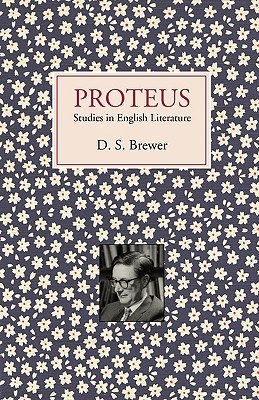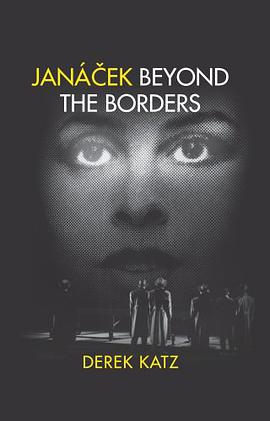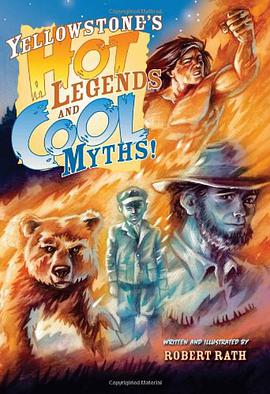

具体描述
In 1819, the German Confederation promulgated the infamous "Carlsbad Decrees," establishing censorship standards aimed at thwarting the political aspirations of post-Napoleonic Germany's rapidly emerging public sphere. This most comprehensive system of state censorship to that point in German lands remained in place until the revolutions of 1848, and is widely acknowledged to have had a profound influence on public discourse. However, although censorship during the period has been the object of much scholarly interest, little is known about its precise effects on literary writing. This book redresses that situation through detailed studies of six works composed and published in different parts of the Confederation by three prominent writers: Christian Dietrich Grabbe, Heinrich Heine, and Franz Grillparzer. By analyzing successive versions of these works, the study illustrates the thematic, linguistic, and aesthetic constraints censorship placed upon their writing, as well as the variety of literary evasion strategies that it stimulated. It demonstrates that while censorship inhibited and distorted German literary writing, it also led to the emergence of distinctively complex and inventive modes of literary expression that came to mark the epoch. Katy Heady received her PhD in German from the University of Sheffield in 2007.
作者简介
目录信息
读后感
评分
评分
评分
评分
用户评价
翻开此书,仿佛时间倒流,置身于那个充斥着阴影与耳语的年代。作者展现出的历史洞察力令人惊叹,她不仅仅罗列了哪些作品被禁,更重要的是,她深入挖掘了“为什么禁”以及“禁令如何塑造了最终的艺术形态”。这本书的结构安排非常巧妙,它不是简单地按时间顺序推进,而是采用了一种主题式的串联,使得不同领域(如戏剧、诗歌、哲学论著)之间的相互影响得以清晰呈现。尤其令人印象费解的是,作者对审查制度执行者的心理侧写,那份冰冷的官僚逻辑与对异议的本能恐惧,跃然纸上。这种对权力运作机制的透彻理解,使得全书的批判力量更加沉稳有力,而非空洞的道德谴责。我尤其喜欢其中关于“沉默的艺术”的讨论,那些未曾写下却在读者心中回响的文字,或许才是那个时代最强大的声音。阅读过程中,我多次停下来深思,思考着当代社会中,我们所习以为常的言论自由背后,是否依然潜藏着类似的隐形约束。
评分这本关于德国复兴时期文学与审查制度的著作,读来让人深感触动。作者以极其细腻的笔触,描绘了那个时代知识分子在思想自由与政治高压之间艰难求存的图景。我特别欣赏它对具体文本的深入剖析,那些曾经被视为禁忌或边缘的作品,在作者的梳理下,重新焕发出它们应有的光彩。通过对档案资料和私人通信的挖掘,我们得以窥见审查官们的心态变化,以及作家们如何巧妙地运用反讽、隐喻等手法,在夹缝中传递他们的真实声音。这不仅仅是一部学术研究,更是一部关于勇气与抵抗的史诗。例如,关于某个剧作家如何通过修改剧本中的地名来规避直接的政治指控,那段论述真是精彩绝伦,让我对文学的韧性有了全新的认识。全书的论证逻辑严密,行文流畅,即便是对历史背景不甚了解的读者,也能被其深厚的文化关怀所吸引。它成功地将宏大的政治叙事与微观的文本解读完美结合,提供了一个多维度的视角来审视那段复杂的历史时期。
评分坦白说,一开始我对这类专注于特定历史时期审查制度的学术著作抱有戒心,担心会过于枯燥和碎片化。然而,这本书的叙事张力完全超出了我的预期。它成功地将历史事件、社会思潮与具体的文学文本编织成一张密不透风的网。作者对德语文献的掌握程度令人叹服,大量一手资料的引用,为她的论点提供了坚实的基础,但她处理这些材料的方式却极为优雅,绝不堆砌术语。相反,她像一位高明的导游,带着读者穿梭于布满陷阱的文学迷宫。我个人认为,这本书最大的价值在于它纠正了许多流行的误解,揭示了许多“被遗忘的抵抗者”——那些从未登上历史舞台中心,却在日常写作中坚守了知识分子良知的普通文人。这种对历史细微之处的关注,展现了作者非凡的学术良心和人文情怀。它迫使我们重新评估“成功”和“失败”的定义,在审查高压下,保留思想的火种本身就是一种胜利。
评分这本书的阅读体验,是一次对“思想的重量”的沉甸甸的体验。作者采用了跨学科的视角,将文学史、政治史与思想史熔于一炉,这使得她的分析具有极强的穿透力。我特别注意到,书中对19世纪末期知识分子圈子内部的意识形态斗争的描绘,那远比官方的禁令本身更耐人寻味。谁在向谁举报?谁又在为谁辩护?这些细节揭示了审查制度如何在社会肌理中扎根。而且,作者的语言风格极具感染力,她的批判是温和而精准的,像外科手术刀一样,直指问题的核心,却不带丝毫多余的激情。这使得论述显得格外可靠和权威。例如,对于一个关键作家的作品如何被“合法化”后重新进入公众视野的过程分析,简直是教科书级别的案例研究。这本书不仅适合研究德国历史的学者,对于所有关注文化权力运作和艺术边界的读者,都具有不可替代的启发意义。
评分阅读这本关于德意志复兴时期文学审查的鸿篇巨制,我感到一种知识上的满足感,以及历史的沉重感。作者没有将审查视为一个简单的二元对立(自由对阵压制),而是将其视为一个动态的、相互塑造的过程。她细致地考察了“自我审查”在文学生态中扮演的角色,这种由内而外的规训力量,有时比国家的法令更具杀伤力。书中对不同阶段审查标准的微妙变化进行了详尽的对比,展现了统治集团在不同历史节点的策略调整,这是非常高明的历史分析手法。我尤其欣赏作者对文本的细读能力,她能从看似平淡无奇的官方批复中,读出潜藏的焦虑和不安全感。这本书的学术贡献在于,它成功地将“审查”这一行为,从一个外部干预,转化为了理解那个时代文学创作内部逻辑的关键变量。读完后,我深刻体会到,真正的文学生命力,往往诞生于最受限制的土壤之中,这种对逆境中创造力的赞颂,是全书最动人的底色。
评分 评分 评分 评分 评分相关图书
本站所有内容均为互联网搜索引擎提供的公开搜索信息,本站不存储任何数据与内容,任何内容与数据均与本站无关,如有需要请联系相关搜索引擎包括但不限于百度,google,bing,sogou 等
© 2026 book.wenda123.org All Rights Reserved. 图书目录大全 版权所有




















